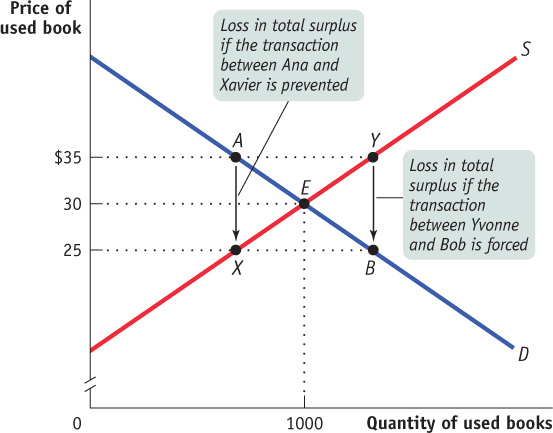
Figure4-14Changing the Quantity Lowers Total Surplus If Xavier (point X) were prevented from selling his used book to someone like Ana (point A), total surplus would fall by $10, the difference between Ana’s willingness to pay ($35) and Xavier’s cost ($25). This means that total surplus falls whenever fewer than 1000 used books— the equilibrium quantity— are transacted. Likewise, if Yvonne (point Y) were compelled to sell her book to someone like Bob (point B), total surplus would also fall by $10, the difference between Yvonne’s cost ($35) and Bob’s willingness to pay ($25). This means that total surplus falls whenever more than 1000 used books are transacted. These two examples show that at market equilibrium, all mutually beneficial transactions— and only mutually beneficial transactions— occur.